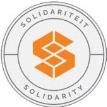Solidarity announces code of good practice for healthy work during Covid-19 crisis
13 April 2020
Trade union Solidarity has submitted a code of good practice for healthy work, including extensive proposals to adjust the lockdown measures, to President Ramaphosa and several cabinet ministers.
These ministers include: Cooperative Governance and Traditional Affairs Minister Dr Nkosazana Dlamini-Zuma; Trade and Industry Minister Ebrahim Patel; Mineral Resources and Energy Minister Gwede Mantashe; Health Minister Dr Zweli Lawrence Mkhize; and Employment and Labour Minister ThembelaniThulasNxesi.
Solidarity has also discussed the code of practice with some of the ministers, ministerial advisers and big businessmen, and will present the code of practice to several other role players in the coming week. These include Cosatu, Numsa, Amcu and other unions, mining houses, Sasol, ArcelorMittal and the Commission for Conciliation, Mediation and Arbitration (CCMA). The purpose of these consultations includes identifying points of agreement with other role players, but then to try and find joint solutions where differences exist.
This came after the President announced that the lockdown would be extended by another two weeks. Solidarity is concerned about the safety and health of all South African workers, but it also fears that a prolonged extension of the lockdown situation would result in an economic catastrophe with major job-losses, poverty and even a humanitarian crisis. That is why Solidarity has submitted a proposal to President Ramaphosa that the government should make it possible for more workers to return to work, even during the lockdown period.
According to Solidarity Chief Executive Dr Dirk Hermann, the trade union proposes a series of regulatory amendments so that people could return to work during the lockdown period. “South Africans must start to return to a new normal. The lockdown process in its current format will have to be adjusted. The coronavirus is going to be with us for a long time. We will need to find a sustainable answer for healthy work. If people are unable to work, so much pressure will be placed on the lockdown situation that the lockdown itself will implode. We must find a solution that will protect the physical and economic well-being of South Africans. We have to fight fearlessly against the virus, and fight fearlessly for the economy,” Hermann said.
Solidarity’s request to President Ramaphosa is that for the sake of a sustainable fight against the virus, the government must ensure that people are able to work in healthy environments. Solidarity wants the government to follow the example of countries such as Singapore and Taiwan and allow people to return to work provided employers comply with a set of requirements in accordance with a clear code of practice. Other countries such as Austria, Norway and Germany have recently announced similar codes of practice in an attempt to start phasing out lockdown measures and allowing workers to return to the workplace provided employers comply with a set of strict regulations.
Solidarity’s occupational health and safety division compiled a comprehensive 26-page document that was submitted to Pres Ramaphosa and other ministers over the weekend.
According to Solidarity General Secretary Gideon du Plessis, in accordance with this proposed code of practice workplaces can manage the risks around the coronavirus most effectively. “Processes can be put in place, behaviour can be determined, and facilities can be adapted. The workplace is a disciplined environment which could even be safer and healthier than homes,” Du Plessis said.
The objective of Solidarity’s proposed code of practice is to ensure the health and safety of all employees in any workplace in South Africa. Furthermore, the code stipulates that a full assessment of the risks posed to the health and safety of employees returning to work must be done at all workplaces. Only if an employer has properly assessed the work environment and the necessary adjustments have been made can government or other stakeholders inspect the workplace and grant approval for employees to return to the workplace.
Solidarity’s proposals are based on getting employees, who have been at home for two weeks already, back to work as soon as possible to prevent a further loss of production. This will mean that job losses, social decay and government’s loss of revenue can be limited. According to Solidarity, the sustainability of many businesses in South Africa is being threatened by the extended lockdown, and if businesses could systematically begin to get workers back to work, the permanent closure of thousands of businesses could be prevented.
Solidarity proposes that employers put plans in place to limit the number of employees who are at the workplace at any given time. This could be achieved by making use of a shift system. Furthermore, employers must check employees for possible Covid-19 symptoms. Employees showing Covid-19 symptoms must be isolated immediately and be tested for the coronavirus. The availability of the appropriate protective gear and clothes is also key.
Moreover, employers must put in place and maintain a rigorous protocol for hygiene which will include the provision of face masks and the necessary facilities where workers can conveniently wash their hands regularly. Employers must also come up with plans for employees to be transported safely to and from the workplace.
According to Hermann, the trade union is hopeful that government will realise the urgency of creating a dispensation where employees could start returning to the workplace. “No South African’s life should be placed at risk, but an extension of the very severe lockdown regulations will create an economic catastrophe that will also destroy people’s lives. That, too, has to be avoided. We are convinced that our comprehensive proposals that will allow workers to systematically return to the workplace are workable and essential.”
Issued by Gideon du Plessis, General Secretary of Solidarity, 13 April 2020

